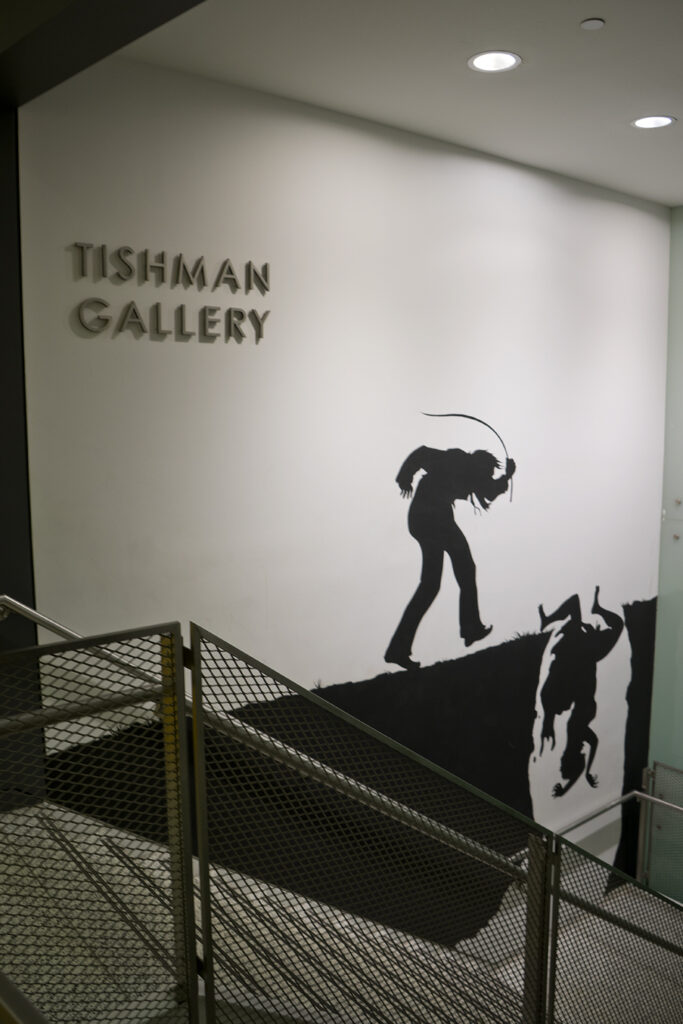
The Kara Walker mural haunts the stairwell at Arnold Hall. The mural enacts stories of the mutilation, degradation, and lament that the condition of slavery breeds. In its placement, however, I believe the mural also plays an inadvertently disturbing role in constituting a form of racial blindness in The New School environment. Placed in the stairwell, it is an extremely public location near the entrance; however, those stairs are certainly not nearly as frequented as the elevators. Except for as part of a class activity, I have never seen anyone stop and observe the mural. Instead, I’ve only seen pedestrians, head down, clomping up the set of stairs without looking at it. In this way, the mural functions as a backdrop as we traverse through our “liberal arts education”. The irony of the mural’s positioning is its ability to function as an emblem of “our commitment to diversity” without necessarily having to put our bodies and minds in close relation to it.
When I spend time with the mural, I particularly like to do so underneath the stairs in a little “cubby” that is somewhat reflective of the space a character in the mural occupies. Though actually above ground, in this space, I am able to channel the intentional undergroundness/”pushed downness” of the characters that are descending in the story.
I often feel I would just like to record the interaction of passers-by with the piece, with a hidden camera, and then display that somewhere. To capture the obliviousness or lack of attention to the mural, I think, is a powerful statement in and of itself.
How many times did you pass by the mural before you really noticed it?
What are the consequences or congruences in the placement of the mural within a stairwell at the bottom floor of an academic institution?
How does the stylistic storyboarding of shadows in Walker’s mural reflect the experiential blackness of academics within institutions that are white-dominant like The New School?
Moremi Akinde
Student, Eugene Lang College The New School for Liberal Arts

